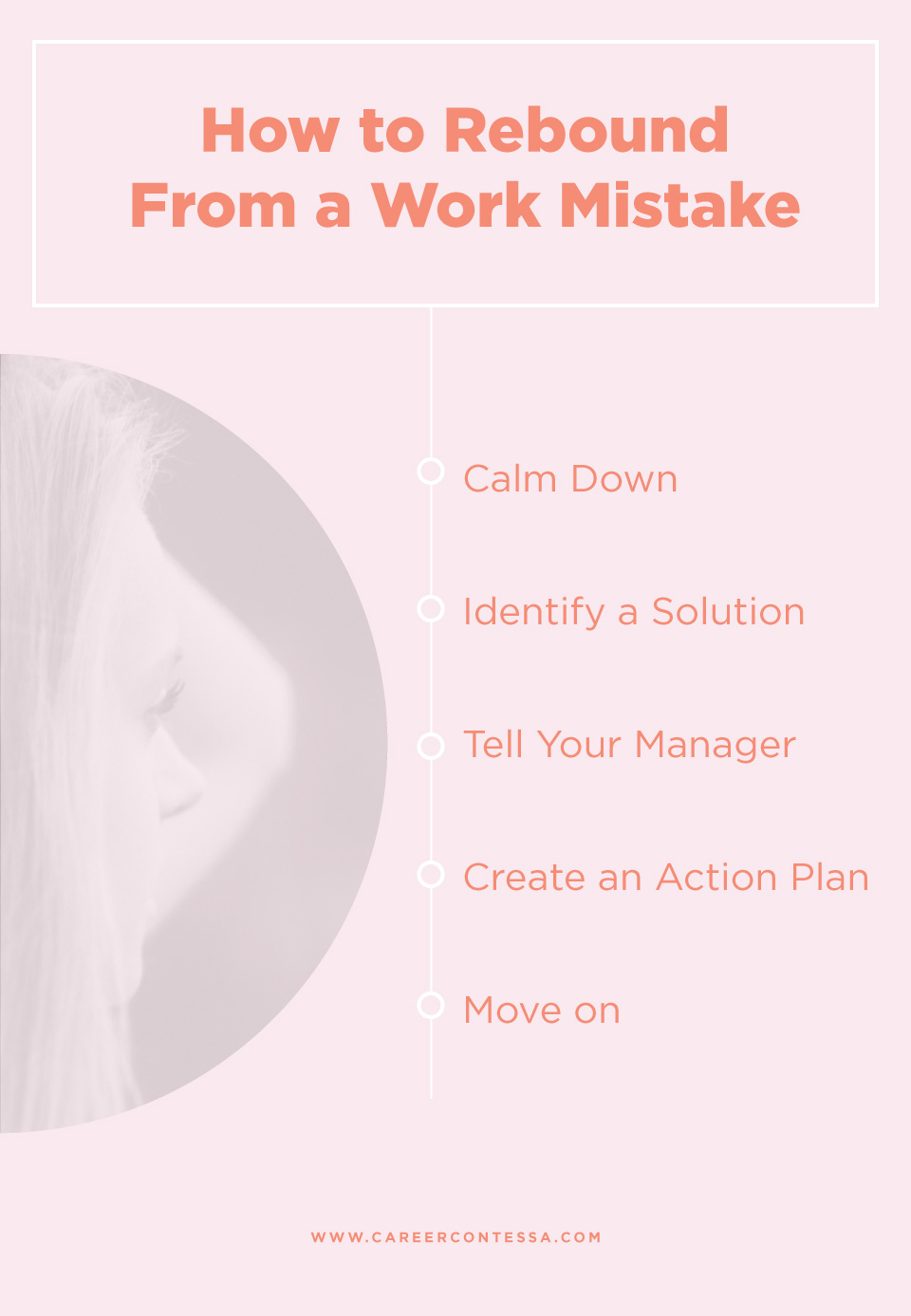Made a mistake at work? Don’t freak. Follow this strategy to fix it.
I still remember the first mistake I made in my professional career.
I was a White House intern and I was asked to edit an Excel document filled with addresses for the President’s Christmas Cards. There must have been thousands of addresses on the sheet, and I was supposed to edit the informal phrases—like “St.” and “PO Box”—to their formal equivalent (“Street” and “Post Office Box”).
I wanted to find a quick solution, so I used the “Find and Replace” feature to quickly find and replace all informal words with the formal ones.
It might have been a great solution, but I made a mistake—I didn’t realize that many names would also be changed as a result. So, Steven Potter became Streeteven Post Office Boxtter.
Unfortunately, mistakes happen. They happen in your personal life and they are bound to happen in your professional life, too. Some mistakes may even be out of your control—but what you can control is how you react and recover from your mistake.
Luckily, I was able to learn an effective and appropriate strategy for fixing a mistake early in my career. Here's what I learned.
Take a Moment to Calm Down
Making a
big mistake is unnerving and you’ll be able to think more clearly if you’ve calmed down first. I recommend taking a walk around the block or listening to your favorite song.
Take a few deep breaths and reassure yourself that everything will be okay. You’ll be better at thinking clearly and finding a solution to the problem if you are calm.
Identify a Solution
Don’t come to your manager or team with a problem.
Come with a solution. In my case, the solution was restoring the document to the original draft. Auto-restore wasn’t working, so I decided I would stay late until everything was fixed. Identify two or three ways that you can fix your mistake.
Don’t start implementing the plan until after you
talk to the team. They may have suggestions, and will probably want to be kept in the loop as you move forward. Regardless of the outcome, people will be impressed by your proactivity and willingness to take accountability for the mistake.
Tell Your Manager
It will be much better if the news is coming from you, not someone else. Don’t try to hide your mistake in the hope that no one will find out. Calmly
explain the mistake and outline your plan for fixing it. Take responsibility and don’t blame other people.
Even if it is a group mistake, be accountable for your part in it.
Your manager and team may have constructive criticism and feedback. Listen carefully to the feedback and show that you’ve acknowledged it. One good technique is to repeat what your manager has said to you. It shows that you are listening and also will help you remember the feedback in the future.
Create an Action Plan
Reflect on the mistake and how you handled it. Create an action plan for how you can improve in the future. For example, if you missed an important client deadline, write down three or four ways that you can
stay more organized.
For example, you might write all of your deadlines on a Post-it Note on your computer screen, while also adding them as tasks on your calendar, so you get an email reminder a few days ahead of time. You could also ask team members how they stay organized, and adopt some of their habits.
Move On
Making a mistake may decrease
your confidence. It’s important to recognize that you are human, and mistakes happen. Reframe the mistake in a positive light by acknowledging how it’s led you to make changes that will improve your performance in the long run.
As James Joyce once said, “Mistakes are the portals of discovery.” Don’t take yourself too seriously.
I had to see the humor in my situation. I still sometimes sign Facebook posts or emails to my former White House intern friends as “Streeteven Post Office Boxtter”. At the end of the day, the holiday cards went out and it wasn’t the Excel Spreadsheet that stole Christmas.
Follow these five tips to gracefully and maturely handle and learn from your mistakes in the future.










